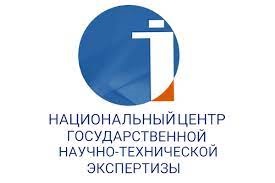EFFECTIVENESS OF PSYCHOLINGUISTIC DIRECTION OF DEVELOPMENT OF KAZAKH LANGUAGE AS A SECOND LANGUAGE
https://doi.org/10.55491/2411-6076-2022-1-88-96
Abstract
Language is a means of communication that brings people and nations closer together and allows them to understand. Language teaching is one of the most difficult tasks. Therefore, the teaching of the Kazakh language to other nations requires a psychological basis. The psychological characteristics of a particular nation play an important role in learning another language. Therefore, when planning the teaching of a language as a foreign language, in the selection of educational materials, first of all, age and psychological characteristics are taken into account. The study of psychological problems of teaching common languages as a foreign language dates back to the last century. As psychology is a branch of science that studies human behavior, it is closely related to the fields related to each methodology. In this regard, in the 50s and 60s of the 20th century, the doctrine of psycholinguistics emerged, which considers the relationship between psychology and linguistics, human speech, the importance of mastering the native language, a foreign language. When a person learns another language, he experiences various psychological processes. Therefore, the teacher should closely monitor the psyche of the student and help him to master the language without any harm. Therefore, the learning process is a process of interaction between teacher and students, because learning, by its psychological nature, is the result of interaction between teachers and students. There is no doubt that teaching a teacher only when he is well-versed in psychology and takes great responsibility for his profession will give certain results. The article considers the methods of teaching the Kazakh language as a second language, psychological features, the fact that the teacher is a leading specialist in language teaching, ways to improve the abilities of the student. Mental types of language learners are identified
Keywords
About the Authors
O. M. OzharovaKazakhstan
Taldykorgan
M. T. Jakypbekova
Kazakhstan
Taldykorgan
References
1. Belyanin V. P. (2003) Psycholinguistics. – Moscow: Flint, 2003. – 232 P.
2. Zhumasova K. (2010) Psychology: Textbook. 2nd edition. – Astana: Folio, 2010. –296 p.
3. Zhakupov S. M. (2008) Fundamentals of general psychology: course of lectures: (intended for students of the specialty 050503 psychology, undergraduates, applicants and teachers studying at a higher educational institution). –A lmaty: KazNU, 2008. – 160 p.
4. Zalevskaya A. A. (1999) Introduction to Psycholinguistics. – Mosskva: Russian state Humanitarian University, 1999. – 382 p.
5. Ibraeva Zh. K. (2020) Fundamentals of Psycholinguistics: a textbook. – Almaty: Kazakh University, 2020. – 125 b.
6. Kunanbayuly A. (2007) Proverbs. – Almaty: Nomads, 2007. – 160 p.
7. Leontiev A. A. (1997) Fundamentals of psycholinguistics. – Mosskva: Smysl, 1997. – 287 p.
8. Mayakova E. V. (2006) Development of children’s learning activities in the process of training foreign languages Bulletin of Moscow University. Series 19: Linguistics and intercultural communication. 2006. No. 4. pp. 146-155.
9. Shakhanova R. A. Psychology of teaching the state language features. [Electronic resource] URL: http://www.rusnauka.com (accessed:10.09.2021)
Review
For citations:
Ozharova O.M., Jakypbekova M.T. EFFECTIVENESS OF PSYCHOLINGUISTIC DIRECTION OF DEVELOPMENT OF KAZAKH LANGUAGE AS A SECOND LANGUAGE. Tiltanym. 2022;185(1):90-99. (In Kazakh) https://doi.org/10.55491/2411-6076-2022-1-88-96
JATS XML

















